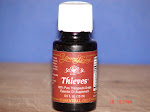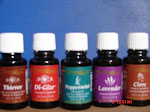Gastritis, non-ulcer dyspepsia, irritable bowel syn-
drome (IBS) and peptic ulcers can all be classifed as
digestive disorders.
Gastriritis is an inflammation of the lining of the stom-
ach causing nausea and discomforts after eating. Dy-
spepsia describes stomach discomforts like bloating,
belching, heartburn, nausea or vomiting. One in four
people will experience dyspepsia. Ulcers are lesions
or wounds in the lining fo the stomach or duodenum.
One of the most common digestive disorders is irrit-
able bowel syndrome, which affects as many as 15%
of adults. IBS is not a disease but a functional disord-
er and diarrhea or constipatioon. Stress can trigger
IBS syndrome as can certain foods, exercise, or
hormones.
Two of the top ten selling drugs in the world (Nexium
at $5.7 billion yearly and Prevacis at $4 billion yearly)
trreat symptoms of heartburn. These drugs work by
blocking the production of stomach acid. The problem
is that one function of stomach acid is to kill swallow-
ed germs.
A study published in (JAMA) determined that 500K
patients taking acid-suppressing drugs had 4 times the
incidence of pneumonia. Second (JAMA) study show
-ed patients taking Prevacid or Prilosec had nearly 3
times the likelihood of being diagnosed with a potent-
ially deadly diarrhea (Clostridium difficile). Masking
symptoms can cause even more health problems!
Essential oils for ulcers *Lemongrass, *Oregano 90
% of duodenal ulcers and 80% of gastric ulcers are
caused by bacteria Helicobacter pylori, these 2 oils
have antibacterical properties, that kill (HP).
Irritable Bowel Syndrome (IBS) oils to be used
*Peppermint * Ginger *Lavender *Jasmine.
http://www.youngliving.com/
Thursday, January 7, 2010
Subscribe to:
Post Comments (Atom)














No comments:
Post a Comment